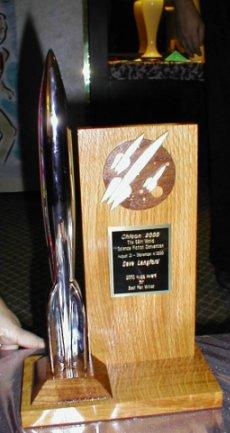2017 Hugo Nominee Reviews

Some opinions on the Hugo Nominees:
Trashy Sci-fi can be fun when your in the mood, but I'm always in the mood for good sci-fi. Most years I try to read most, or all, of the Hugo nominees when they come out. It's often a rewarding process. 2015 and 2016 both felt like kind of weak years to me... but 2017 has been absolutely amazing.
Since I'm having a little writers block with my school-work I thought I would try to write something light to break it... so I'm going to share some of my rave reviews. So here are my picks in order:
Too Like the Lightning (Grade: A+)
by Ada Palmer (Tor Books)
The best book I have seen since "Ancillary Justice". This book, and it's sequel (which I promptly dropped everything else to read, as they sort of feel like one book cut in half for publishing concerns) is Dense, complicated, and extremely well educated. It is set in plausible feeling utopia and focuses on deep and philosophical themes: What qualifies as god? How deeply rooted are gender norms? What can be forgiven? Who should be able to kill, and for what?
The books characters are refreshingly bright, most of them take a reasonable philosophical position to live their life by, and extend it to it's logical conclusion. This means that the conflicts are not "oh we misunderstood each other" or "we missed the train" sorts of things, but cut right to the heart of what it means to be human for each character. Basically none of the characters makes any "unforced errors", but they all remain deeply human.
This book is not just sci-fi, but literature. It tours the classic's focusing on the enlightenment from Spinoza to De-Sade , and brings their thought to life in a riveting story.
In my opinion, this should be the clear winner.
All the Birds in the Sky (Grade: A)
by Charlie Jane Anders (Tor Books / Titan Books)
Against the 2015 or 2016 line-up this would have been a clear winner.
This is a delightful book focusing on the personal relationship of two strange young people. One who is a witch, and one who is a technological wizard.
It's set in the near future, and deals with feelings, poetry, and coming of age as much as anything else. The magic is written more believably than the science, and there are some really cool little writing flourishes scattered through the book. I strongly recommend.
Ninefox Gambit (Grade: A-)
by Yoon Ha Lee (Solaris Books)
A bit of a far future space-opera with military and naval, this book feels like it is rooted in Korean culture, and it's vision of a far future is more exotic because it was clearly grown from a non-western seed. It revolves around technology which is so advanced that it is hard to distinguish from magic... In particular most of the tech seems to reliant to what calendar people are using on a consensus basis... With the right calendar and some math you can do just about anything.
The characters are clever, and this is one of those "plots within plots" books, but somehow the characters all feel like they are players in a game, and not humans.
Themes of "cultures at war", "the horror of war", and trust issues
The Obelisk Gate (Grade: B)
by N. K. Jemisin (Orbit Books)
Sequel to "the fifth season", Obelisk picks up where the last book left off. Sadly the world-building payload has already been delivered, and the characters described. Obelisk feels like it's mostly just ticking off a bunch of necessary next steps for everyone. It fulfills it's purpose as a sequel, and the writing is tight, but it mostly feels like "just another book in a series".
Totally worth reading if you already got yourself into the fifth-season universe, but in my opinion shouldn't really be up for a Hugo.
A Closed and Common Orbit (Grade: B-)
by Becky Chambers (Hodder & Stoughton / Harper Voyager US)
Great writing carries this book, along with very human characters. I have trouble telling, but it feels like it should be a Young Adult book if it isn't... It touches some classic YA themes: who counts as a person, how to be yourself, what counts as love, how to survive in a strange and harsh world.
It's characters are relatable, and lovable. Sadly the book as a whole has the depth of a bird-bath. Ethical implications are only really explored to the depth of "You should probably be nice". Conflict is always either based on misunderstanding, "man vs nature", or "man vs obviously bad bureaucracy".
characters are never really forced to place any values in conflict with each other, and there are no hard choices. The world building feels generic and generally the whole book is going to leave the reader unchanged as a human.
Good writing, likable characters, and good-guys win in the end make it a fun book to pick up when you need some mental bubble-gum, but probably shouldn't be up for a Hugo.
Death’s End, by Cixin Liu (Not Graded)
translated by Ken Liu (Tor Books / Head of Zeus)
Third book in a series (kicked off by 3-body problem) I didn't feel like reading my way up to this, particularly as I felt like 3-body problem wasn't really my favorite to start with. I didn't read this one.